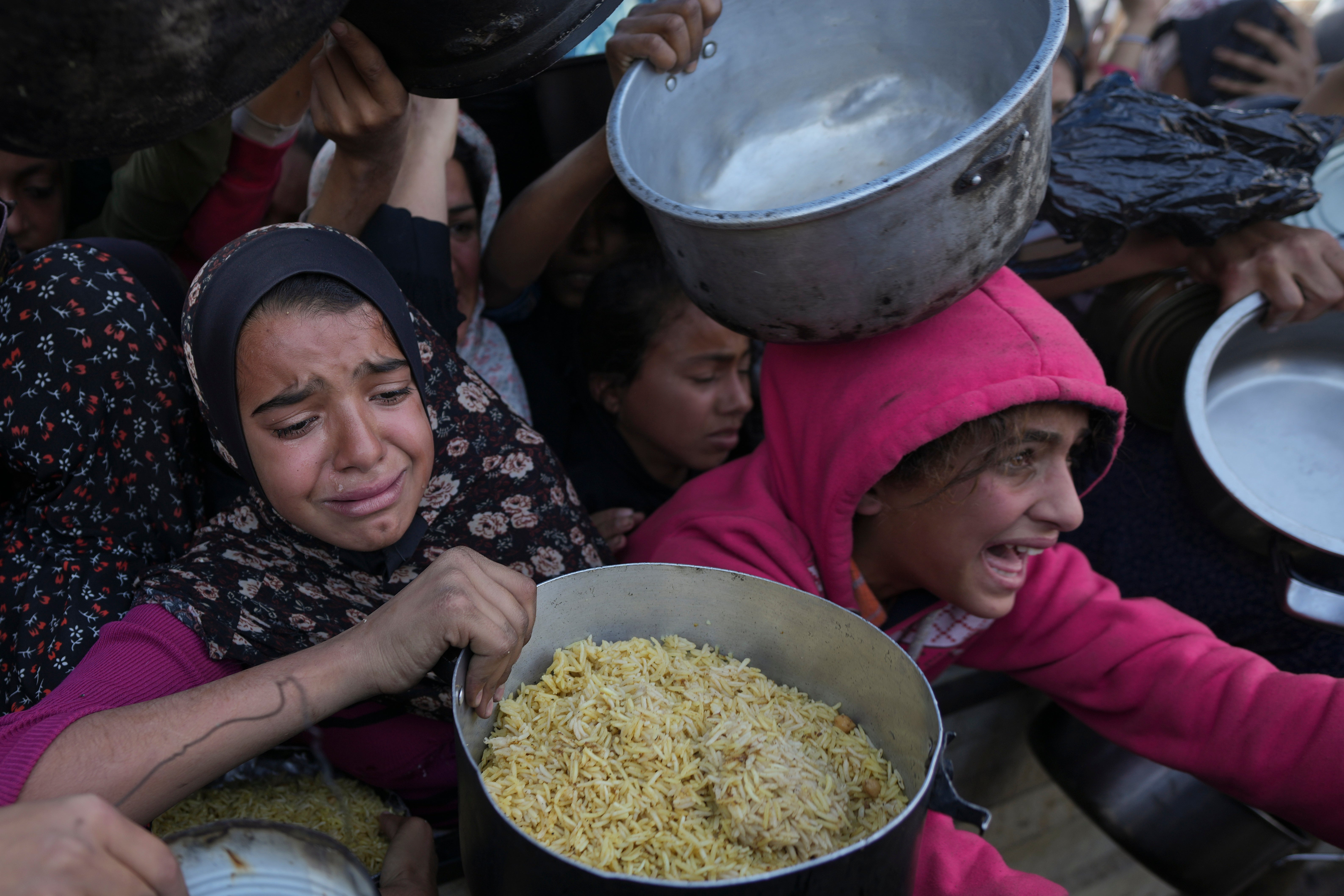Palestinians urge support for UN resolutions demanding an immediate Gaza ceasefire
The Palestinians have urged U.N. member nations to support resolutions demanding an immediate ceasefire in Gaza and backing the U.N. agency for Palestinian refugees that Israel has moved to ban

The Palestinians urged U.N. member nations to support resolutions demanding an immediate ceasefire in Gaza and backing the U.N. agency for Palestinian refugees that Israel has moved to ban.
The 193 nations in the U.N. General Assembly will vote on Wednesday after two days of speeches overwhelmingly calling for an end to the 14-month war between Israel and the militant Hamas group.
Israel and its close ally, the United States, are in a minority that has spoken against the resolutions.
While Security Council resolutions are legally binding, General Assembly resolutions are not, though they do reflect world opinion. There are no vetoes in the assembly.
The Palestinians and their supporters went to the General Assembly after the U.S. vetoed a Security Council resolution on Nov. 20 demanding an immediate Gaza ceasefire. It was supported by the council’s 14 other members but the U.S. objected that it was not linked to an immediate release of hostages taken by Hamas militants during their attack on Israel on Oct. 7, 2023, which triggered the war.
The language of the first resolution before the assembly is similar to the text of the vetoed resolution, demanding “an immediate, unconditional and permanent cease-fire to be respected by all parties," while also reiterating a "demand for the immediate and unconditional release of all hostages.”
The second resolution backs the mandate of the U.N. agency for Palestinian refugees, known as UNRWA, which was established by the General Assembly in 1949.
The text deplores laws adopted by Israel’s parliament on Oct. 28 banning UNRWA’s activities in the Palestinian territories, a measure to take effect in 90 days. And it reiterates U.N. Secretary-General Antonio Guterres’ statements that UNRWA is “the backbone” of all humanitarian operations in Gaza and no organization can replace it.
Israel alleges that around a dozen of UNRWA’s 13,000 workers in Gaza participated in Hamas' attacks on Israel that precipitated the war. It recently provided the U.N. with over 100 names of UNRWA staff it accuses of having militant ties.
The resolution calls on the Israeli government “to abide by its international obligations, respect the privileges and immunities of UNRWA and uphold its responsibility to allow and facilitate full, rapid, safe and unhindered humanitarian assistance in all its forms into and throughout the entire Gaza Strip.”
U.S. deputy U.N. ambassador Robert Wood reiterated America's opposition to the ceasefire resolution on Wednesday and criticized the Palestinians for again failing to mention Hamas’ Oct. 7, 2023, attack on Israel that killed about 1,200 people, mostly civilians, and abducted another 250 as hostages. Gaza militants have not returned around 100 hostages, a third of them believed to be dead, and ceasefire efforts have ground to a halt.
Israel’s retaliatory offensive has killed over 44,000 Palestinians in Gaza, according to the local Health Ministry. It says women and children make up more than half the dead but does not distinguish between fighters and civilians in its count.
Israel’s U.N. Ambassador Danny Danon made no mention of a ceasefire in his assembly speech but accused UNRWA of operating “hand-in-hand with Hamas and their diplomatic proxy, the Palestinian Authority.”
“Together, they entrench hatred, glorify violence and perpetuate conflict,” he said.
If U.N. members truly want peace, Danon said, “it begins with dismantling this infrastructure of hate. End the glorification of terror. Stop rewarding murder. Dismantle UNRWA. Hold the Palestinian leadership accountable for decades of rejection and incitement.”
At the opening of the assembly debate last Wednesday, the Palestinian U.N. Ambassador Riyad Mansour accused Israel of mass killings, displacements, destruction and starvation — “a cruel war of atrocities against an entire civilian population.”
Mansour said the only way to stop the atrocities, free the hostages, “and to preserve the hope of a different future” is an immediate ceasefire in Gaza and support humanitarian efforts and prevent Israel’s attempt to eliminate UNRWA.
Slovenia’s U.N. Ambassador Samuel Žbogar, reflecting the views of many speakers, pointed to the tens of thousands killed in Gaza.
“Gaza doesn’t exist anymore," he said. “It is destroyed. Civilians are facing hunger, despair and death.”
Bookmark popover
Removed from bookmarks